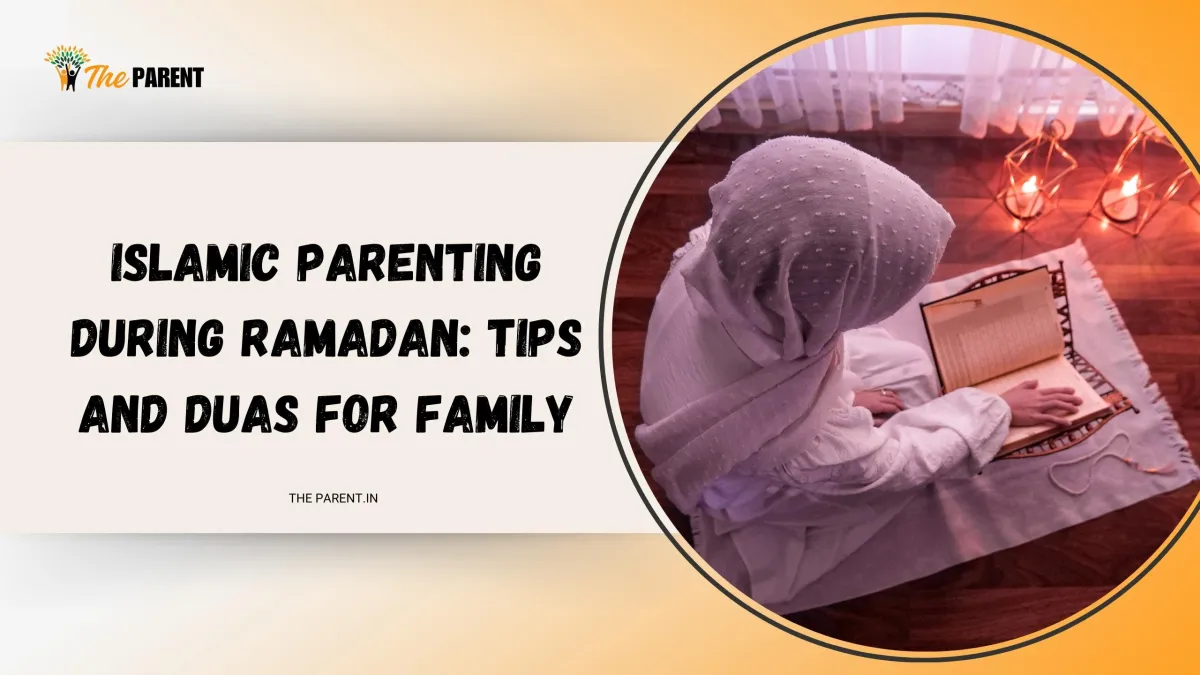
Islamic Parenting During Ramadan: Tips and Duas For Family
Ramadan (Ramazan) is a sacred time for Muslims worldwide, characterized by fasting, prayer, and reflection. For Muslim parents, it can also be a unique opportunity to instill Islamic values and traditions in their children. Balancing the spiritual and practical aspects of Ramadan (Ramazan) while ensuring that children understand and appreciate its significance can be both rewarding and challenging.
Here are some Ramadan (Ramazan) parenting tips to help you navigate this holy month with your family.
Understanding the Importance of Ramadan (Ramazan)

To begin with, it's essential to explain to your children the significance of Ramadan. Share stories from the Quran and Hadith that highlight the importance of this month. Discuss the values of empathy, patience, and charity that Ramadan emphasizes.
Involve Children in Ramadan (Ramazan) Preparations
Getting children involved in Ramadan preparations can be both fun and educational. Let them help with decorating the house, planning iftar meals, and setting up the prayer area. This not only gets them excited about Ramadan but also helps them understand its importance.
Age-Appropriate Fasting Practices
While children are not required to fast until they reach puberty, you can introduce them to the concept gradually. Start with half-day fasts or fasting on weekends. Emphasize the spiritual aspects rather than focusing solely on abstaining from food and drink.
Create a Ramadan (Ramazan) Routine
Establishing a consistent Ramadan routine helps children know what to expect each day. Include prayer times, reading Quran, family iftar and suhoor (pre-dawn meal), and quiet time for reflection. This routine can help children feel more connected to their faith and family.
Family Activities for Ramadan (Ramazan)
Incorporate family activities for Ramadan that are both educational and enjoyable. Activities like reading Quranic stories, crafting Ramadan lanterns, and making charity boxes can be very engaging. Encourage older children to participate in community service and charity work to understand the importance of giving back.
Balancing School and Ramadan (Ramazan)
Balancing school commitments with Ramadan observances can be challenging. Ensure that children get enough rest by adjusting their bedtime if necessary. Communicate with teachers about Ramadan, so they are aware of your child's needs during this time.
Encouraging Empathy and Charity
Teach children about the importance of empathy and charity during Ramadan. Encourage them to participate in charitable activities, such as donating to those in need or helping a neighbor. Explain how their actions can make a positive difference in someone's life.
Making Iftar Special
Turn iftar into a special family time. Let children help with the preparation of iftar meals, and involve them in setting the table. Share a special prayer before breaking the fast and discuss what each family member is grateful for.
Reflecting on Ramadan (Ramazan) Experiences
Encourage children to keep a Ramadan journal where they can write about their Ramadan experiences for families. This can include their thoughts, feelings, and any new things they learned during the month. It’s a great way to help them reflect on the significance of Ramadan and how it impacts their lives.
Powerful Dua (Prayers) for Ramadan (Ramazan)
Incorporating dua (prayers) into your Ramadan routine can deepen your family’s connection to their faith. Here are some powerful dua to include:

1. Dua for Breaking the Fast (Iftar)
اللّهُمَّ إِنِّي لَكَ صُمْتُ وَبِكَ آمَنْتُ وَعَلَيْكَ تَوَكَّلْتُ وَعَلى رِزْقِكَ أَفْطَرْتُ
Translation: "O Allah! I fasted for You and I believe in You and I put my trust in You and with Your sustenance I break my fast."
2. Dua for Fasting (Suhoor)
وَبِصَوْمِ غَدٍ نَوَيْتُ مِنْ شَهْرِ رَمَضَانَ
Translation: "And I intend to keep the fast for tomorrow in the month of Ramadan."
3. Dua for Seeking Forgiveness
اَسْتَغْفِرُ اللّٰهَ رَبِّىْ مِنْ كُلِّ ذَنْبٍ وَاَتُوْبُ اِلَيْهِ
Translation: "I seek forgiveness from Allah, my Lord, from every sin I committed and I turn to Him."
4. Dua for Guidance and Protection
رَبَّنَا آتِنَا فِي الدُّنْيَا حَسَنَةً وَفِي الْآخِرَةِ حَسَنَةً وَقِنَا عَذَابَ النَّارِ
Translation: "Our Lord, give us in this world [that which is] good and in the Hereafter [that which is] good and protect us from the punishment of the Fire."
5. Dua for the Last Ten Nights of Ramadan (Ramazan)
اللّهُمَّ إِنَّكَ عَفُوٌّ كَرِيمٌ تُحِبُّ العَفْوَ فَاعْفُ عَنِّي
Translation: "O Allah, You are Most Forgiving, and You love forgiveness; so forgive me."
Finally, remember that Muslim parenting during Ramadan (Ramazan) is about supporting each other. Foster an environment of patience and understanding. Recognize that each child's experience and understanding of Ramadan will be different, and that's perfectly okay.
By incorporating these Ramadan (Ramazan) parenting tips, you can make the holy month a meaningful and enriching experience for your family. Raising children during Ramadan with the right balance of spiritual guidance and practical support can help them develop a deep and lasting appreciation for this special time.


